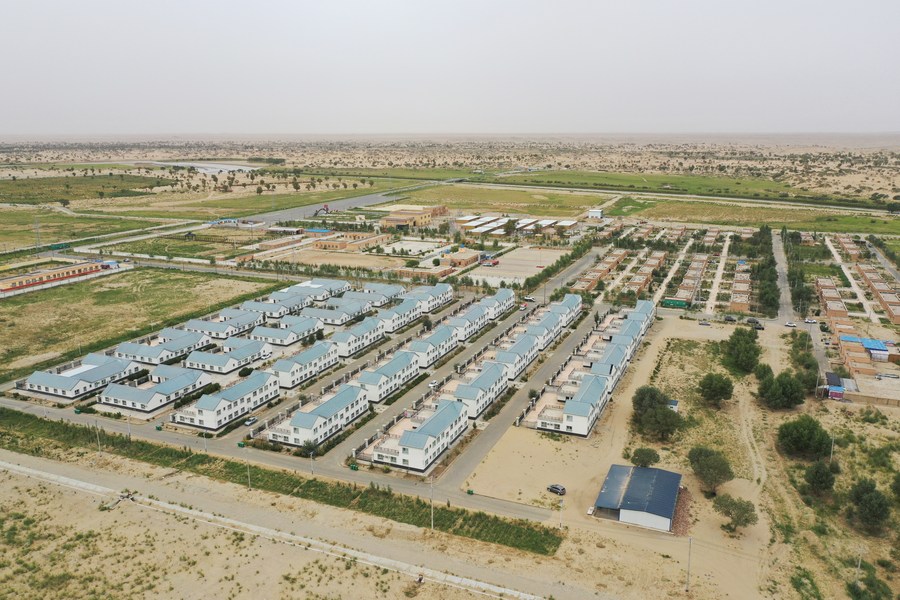URUMQI: A roaring fire flashes with a crisp turn of the dial, as Spiremuhan Bawudong lights the gas stove in her kitchen to prepare lunch. Until just a few years ago, making a meal seemed to take forever as she still relied on firewood for cooking.
“With natural gas available, life is so much easier now,” said Spiremuhan Bawudong, a resident of Darya Boyi, a village located at the heart of the Taklimakan Desert in northwest China’s Xinjiang Uygur Autonomous Region.
Thanks to a major project that began 10 years ago, more than 4,700 km of pipelines now crisscross southern Xinjiang, allowing Spiremuhan Bawudong and over 8 million others to bid farewell to traditional “dirty” fuel such as firewood and coal and march into a cleaner and safer natural gas era.
In addition to enhancing the quality of modern living, these pipelines have infused boundless vitality into the local economic development, creating more opportunities for people from all ethnic groups living in the Tarim Basin, a major petroliferous basin in China.
For centuries, people in Darya Boyi have established their homes along the banks of the Keriya River, sustaining generations by relying solely on poplar logs and red willow tree branches for cooking and heating.
In 2017, the first group of 396 people, which included 100 children, moved into the new settlement located approximately 110 km away from the old location. By 2019, the entire village was relocated. “The new house is well-connected with paved roads, and here a tank of liquefied natural gas costs only 100 yuan (about 13.9 U.S. dollars), lasting for several months,” Spiremuhan Bawudong said.
Since relocating to the new place, preparing meals has become significantly more enjoyable for Spiremuhan Bawudong, as the choking smoke from cooking is now a thing of the past. –The Daily Mail-China Daily news exchange item





